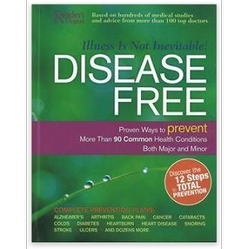Various researchers have discovered that walking protects our brains. There have been studies at the University of Miami into the effects of walking, which show that those who do not walk experience cognitive decline in ageing quicker than walkers do, and they have shown that walking six miles a week protects brain size and enhances memory. This enhancement of cognitive capacity seems greatest in regions associated with planning and memory.
Studies at the University of Toulouse have shown that walking outdoors improves mood and helps alleviate mild depression. I think that this may be due to the fact that walking is an inherently stress-free activity, so when we do it we are replacing stressful activities with a stress-free one, and that cannot be bad for us.
There is a link between walking and thinking. Stephen Zwolinsky of Leeds Beckett university says that human are designed to solve problems while walking for fourteen hours a day. I know that when I was a theological student in the North West of Ireland I used to slip out of college at night [against the rules, but no one looked for me] and walk the roads, often in the dark,pondering questions in the philosophy of religion. I got more from that than I did from some lectures. We can walk alert to nature, picking up its sights and sounds, listening to the music of wind and water and catching the play of the light and the ever-changing cloudscapes above us. When walking, be it in town or country, we can gently stimulate our minds in a low-stress way, though pondering along dark lanes at night might not be the lowest stressed from of walking.
The precise amount of walking that we need to do daily is not clear.Several years ago scientists plucked a figure from the air of ten thousand steps a day, but there was never any scientific basis for this, and more recent figures have been around twelve thousand steps daily. But I believe that any regular walking is good for you. I rarely do ten thousand steps a day, but seven thousand is not unusual for me. I am at 7923 today and it is only five o'clock in the afternoon, so there is more time to walk.
I have always loved walking, ever since my parents, who could not afford a car, used to take me and my brother by bus to Werneth Low, a small peak in the foothills of the Pennines, the range that divides North West from North East England. Happy days when I was under five years old and the sun shone. I have not done a twenty mile walk for some time, as commitments to family and the allotment are quite demanding, but I have done plenty of shorter walks. There is a yearning on me for a good long one, so where next and when, as the Autumn is drawing in and the weather in our stormy isle is not so good?










 Pilgrimage. A review29 days ago
Pilgrimage. A review29 days ago
 Leo the Fourteenthon 05/09/2025
Leo the Fourteenthon 05/09/2025
 The Melsonby Hoardon 03/25/2025
The Melsonby Hoardon 03/25/2025




Comments
We have walked in snow. We would not go out in really bad weather.
The third paragraph to the first subheading, The lifestyle, concerns your and your wife's walking in the sun and then in the rain.
Has there ever been a Beswick couple walk in the snow?
(How high would the temperature have to rise, how low would it have to fall for you and your wife and your family not to honor amiable walks?)
There is no normal tendency. It is purely individual.
Some people like to underdress when they walk even as others like to overdress.
The former maintains the minimalist, shortest shorts and tops even as the latter manages to cover up as much as possible from neck down through feet.
What would be the tendency among eastern-ponders?
Light boots. But I cannot speak for Veronica.
The third paragraph under your first subheading, The Lifestyle, describes you and your wife hiking.
May I ask what footwear Maureen and little sister Veronica select for hiking or just walking around the block?
Grandma Blue Eyes, my English grandmother Rose, opted for sensible shoes and Wellington-like boots. She selected laced boots or oxfords for hikes and laced oxford-like shoes with heels for daily life.
The latter only seem to show up in black-and-white films or in present-day films, such as Darkest Hour, set before mid-century.
I now have a pedometer that counts my steps.
This is my favorite exercise, we have nice wooded streets to walk, and if it is raining I have an indoor walking program I do. I could be doing it more lately, thanks for the reminder.
Sometimes cities can be good walking experiences, but I prefer the countryside. I did quite a lot of mountain walking when I was younger, but I tend to prefer coastal walks these days, though I don't get enough time for them. Of course, no British person is more than a hundred miles from the sea, and my home is a mere thirty.
Your mention of cloisters made me think, for monks sometimes walk in the cloisters and at other times sit and read. This made me think about the relationship between walking and sitting. At times on a walk we can stop and think. There are times when you must stop walking for a while and stop to experience the landscape. Whether sitting or walking we need to sensitize ourselves to the landscape, taking in the blend of culture and nature with which most walks present us.
This was inspiring to me, too, especially your comment about cloisters, since I find that walking in the city can be a burden sometimes: too much clamor, and hustle and bustle; sometimes I can't even someone on the phone as I walk.